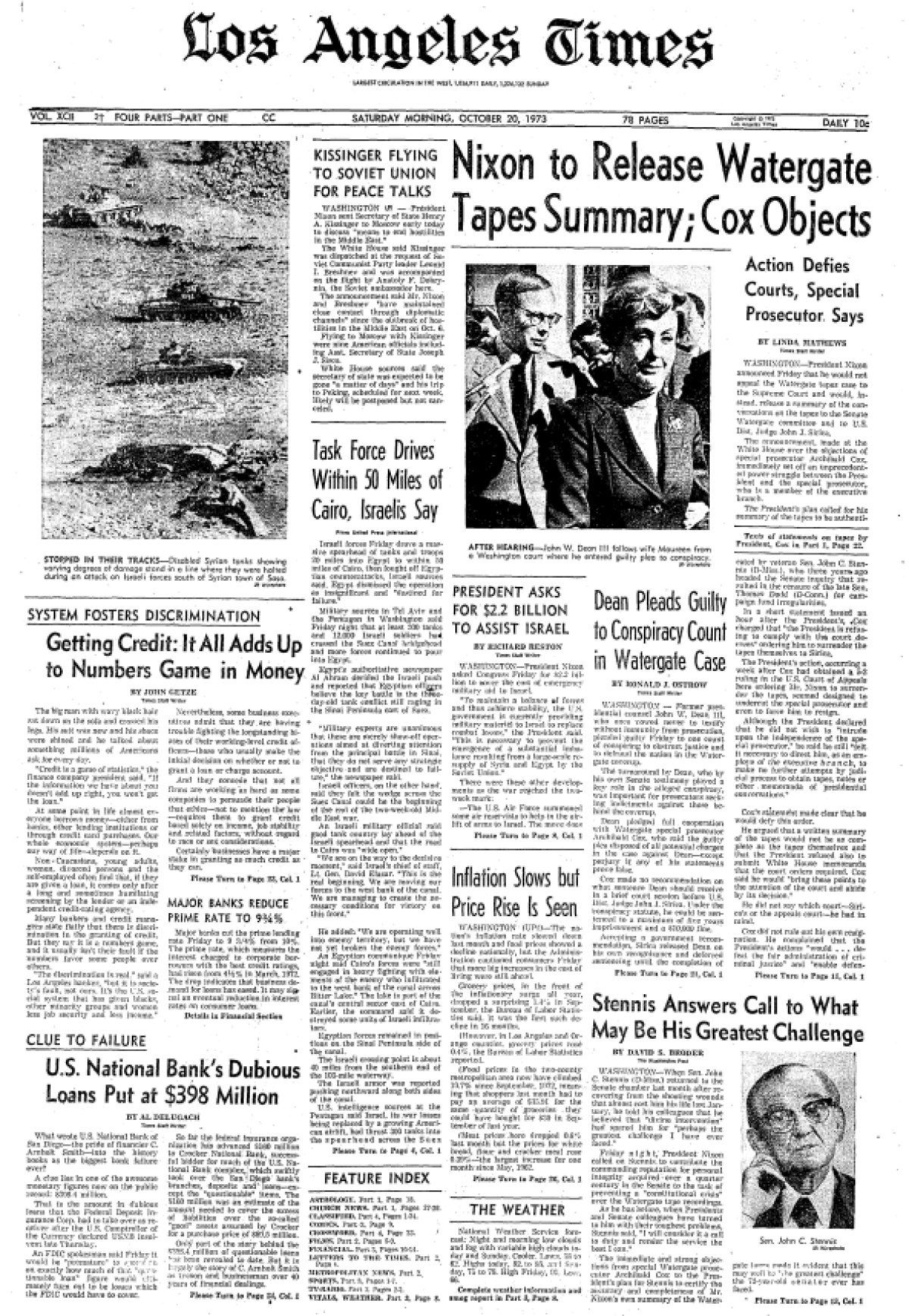The last time a president admitted he secretly taped conversations, he had to resign
- Share via
You could say that it was with great interest Friday morning that Ken Hughes, a presidential historian with the University of Virginia’s Miller Center, saw what the current president was saying on Twitter.
“
“The first thing I asked is whether he realized that, if he does have tapes of his conversations with Comey, they’re evidence in any investigation of whether his firing of Comey amount to obstruction of justice,” said Hughes in an interview with the Los Angeles Times.
“If so,” he added, “they are evidence related to a criminal investigation and therefore they can be subpoenaed, either by
Hughes would know. He is one of the nation’s foremost experts on the voluminous secret recordings that President Nixon taped in the Oval Office, tapes that ultimately ended his presidency.
“Nixon found out the hard way that having tape recordings of your conversations can backfire,” Hughes said.
Democrats in Congress, aware of the parallels — and raising questions over whether Trump fired the FBI director for investigating his administration’s possible ties to Russia — have pounced immediately, demanding any such Trump tapes be turned over to Congress. During a press briefing Friday, White House spokesman Sean Spicer repeatedly declined to deny that Trump is secretly taping his conversations, telling reporters, “The president has nothing further to add on that.”
The existence of Nixon’s secret tapes were revealed during the investigation into the Watergate burglary of Democratic offices in 1972, which had been directed by Nixon’s aides. A special prosecutor subpoenaed the tapes, and when Nixon objected, the U.S. Supreme Court ruled that the president couldn’t claim “executive privilege” to keep the tapes secret.

The tapes, once turned over, showed that Nixon had obstructed the investigation into the Watergate break-in. Nixon then resigned rather than face impeachment.
Today, the law is even less in favor of a president keeping such recordings secret.
“The law was very different back then,” said Luke Nichter, an associate professor of history at Texas A&M University who has published two books about Nixon’s tapes, and whose phone was ringing off the hook Friday. “The tapes were his personal record. Today, if the president sends a tweet, it’s technically a public record.”
That’s due to an “avalanche” of new public-records laws that Congress passed to increase executive transparency after the scandals of the Nixon presidency, including the Presidential Records Act and an amendment to the Federal Records Act, Nichter said.
Then there was the cultural impact.
“When the Nixon tapes became public, what shocked people so much was the difference between what Nixon said in public and what Nixon said in private,” said Nichter, who asked if Trump tapes would reveal the same thing — if there is a difference between the public and private Trump. “If he did do taping, we might finally learn the answer to that question.”
ALSO
Sessions restores tough drug war policies that trigger mandatory minimum sentences
Trump's statements linking Russia investigation to Comey firing could lead to legal problems
Sign up for Essential California
The most important California stories and recommendations in your inbox every morning.
You may occasionally receive promotional content from the Los Angeles Times.








